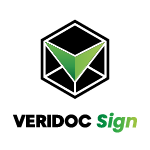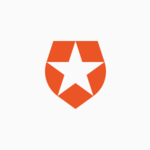Description

SheerID

VeriDoc Sign
Comprehensive Overview: SheerID vs VeriDoc Sign
SheerID: Comprehensive Overview
a) Primary Functions and Target Markets
SheerID is an identity verification platform primarily focused on helping businesses verify customer eligibility for special offers, discounts, or services based on specific attributes or affiliations. These attributes may include student status, military affiliation, first responders, teachers, or senior citizens.
-
Primary Functions:
- Verify customer identities without the need for sensitive documents
- Prevent discount abuse and ensure that offers target the correct audience
- Enhance customer experience by ensuring a seamless verification process
-
Target Markets:
- Retail and eCommerce
- Telecommunications
- Education
- Healthcare
- Travel and Hospitality
b) Market Share and User Base
While specific market share data for SheerID isn't frequently published, it is recognized as a leader in eligibility verification services, particularly in retail and eCommerce sectors. Known for having partnerships with significant brands like Amazon, Spotify, and Nike, SheerID has built a substantial user base by establishing itself as a trusted solution provider.
c) Key Differentiating Factors
- Comprehensive Database: SheerID accesses a wide array of authoritative data sources to verify identities in real-time.
- Privacy-Centric Approach: Prioritizes consumer privacy by eliminating the need to upload documents.
- Customizable Solutions: Offers flexible API integrations that can be tailored to different business needs and use cases.
VeriDoc Sign: Comprehensive Overview
a) Primary Functions and Target Markets
VeriDoc Sign is a digital document signing and verification platform that utilizes blockchain technology to ensure the authenticity and integrity of signed documents. The platform is used for secure digital transactions and record-keeping.
-
Primary Functions:
- Facilitate secure electronic signatures
- Verify the authenticity of documents using blockchain
- Prevent document fraud and unauthorized alterations
-
Target Markets:
- Legal Industry
- Real Estate
- Education
- Healthcare
- Financial Services
b) Market Share and User Base
VeriDoc Sign, while a niche player compared to giant electronic signature services like DocuSign or Adobe Sign, has carved a unique position due to its blockchain-based verification capabilities. It primarily appeals to industries that require a higher level of security and immutability for document verification.
c) Key Differentiating Factors
- Blockchain Technology: Uses blockchain to ensure each document's integrity and authenticity, making it more secure compared to traditional e-signature platforms.
- Immutability: Once a document is signed and verified, it cannot be altered without detection, ensuring long-term integrity.
- Cross-Industry Flexibility: Offers solutions that can cater to multiple industries requiring secure document transactions.
Comparison and Conclusion
SheerID and VeriDoc Sign serve fundamentally different purposes and cater to different needs within the identity verification and digital process automation markets.
- Functionality: SheerID focuses on eligibility and identity verification, while VeriDoc Sign is centered around secure document signing.
- Technology: SheerID uses a privacy-focused, data-based approach to verify identities, whereas VeriDoc Sign leverages blockchain for document integrity.
- Market Position: SheerID has a more extensive reach in general consumer markets with significant partnerships, whereas VeriDoc Sign appeals to sectors needing enhanced document security.
Both platforms are leaders in their niche areas due to their specialized technologies and applications, addressing different facets of identity verification and document authentication.
Contact Info

Year founded :
2011
+1 541-221-9504
Not Available
United States
http://www.linkedin.com/company/sheerid

Year founded :
Not Available
+61 7 3112 8080
Not Available
Australia
http://www.linkedin.com/company/veridoc-sign
Feature Similarity Breakdown: SheerID, VeriDoc Sign
To provide a feature similarity breakdown for SheerID and VeriDoc Sign, an understanding of their core functionalities and markets is necessary, as these products serve different primary purposes.
a) Core Features in Common
-
Verification Systems:
- Both SheerID and VeriDoc Sign involve verification processes. SheerID focuses on personal identity verification for eligibility (e.g., verifying students, teachers, or military status), while VeriDoc Sign ensures document authenticity through verification mechanisms in its digital signing process.
-
Security Measures:
- Both platforms emphasize security. SheerID ensures that the identities it verifies are authenticated to prevent fraud, while VeriDoc Sign uses security protocols to ensure documents are securely signed and completed.
-
API Integration:
- Each service offers API integrations for businesses to enhance their processes and customer experiences. SheerID can be integrated into e-commerce sites for eligibility verification, while VeriDoc Sign allows for document workflows within existing platforms.
b) User Interface Comparison
While detailed user interface (UI) comparisons may vary slightly based on version and customization options, general insights can be provided:
-
SheerID:
- Typically offers a straightforward UI for users to input identity information for verification. The focus is on ease of use and rapid verification to minimize user friction.
- Client dashboards likely provide data and analytics related to verification processes, emphasizing clear insights into user engagement and verification outcomes.
-
VeriDoc Sign:
- The interface typically features user-friendly navigation for uploading documents, applying signatures, and verifying document authenticity. It emphasizes simplicity in creating document signing workflows, with easy access controls and audit trails.
- Dashboards for users focus on managing documents, tracking signature statuses, and ensuring compliance with standards.
c) Unique Features
-
SheerID Unique Features:
- Eligibility Marketing: Specializes in using verified identity attributes to enable exclusive offers for qualified groups. This capability supports targeted promotions and can drive significant marketing strategies for brands.
- Diverse Verification Triggers: Ability to verify across various platforms, including mobile, online, and in-store, supporting omnichannel campaigns.
-
VeriDoc Sign Unique Features:
- Blockchain Verification: Utilizes blockchain technology to verify each document's authenticity, enhancing security and traceability compared to traditional digital signatures.
- Audit Trail and Compliance: Offers detailed audit trails and compliance features that align with digital signature laws like eIDAS and ESIGN, which might be more robust due to blockchain integration.
In summary, while both platforms involve verification and share core security features, they are distinct in their primary applications—identity verification for consumer engagement (SheerID) versus document authentication and digital signature solutions (VeriDoc Sign). The unique features of each product reflect these different focuses, with SheerID enhancing marketing capabilities and VeriDoc Sign leveraging blockchain for document security.
Features

Not Available

Not Available
Best Fit Use Cases: SheerID, VeriDoc Sign
Certainly! Let's delve into the specifics of SheerID and VeriDoc Sign, exploring their best fit use cases, industry suitability, and preferences based on company size and needs.
SheerID
a) Best Fit Use Cases:
-
Retail and E-commerce: SheerID is ideal for businesses in retail and e-commerce that offer exclusive discounts and promotions to specific consumer segments like students, military personnel, teachers, or first responders. Its identity verification services ensure that only eligible individuals receive these offers.
-
Subscription Services: Companies that provide subscription-based services (e.g., streaming, education, software) can use SheerID to verify the eligibility of individuals for special pricing tiers or promotions, ensuring compliance and preventing fraudulent claims.
-
Marketing and Promotions: SheerID is useful for businesses looking to create targeted marketing campaigns aimed at specific groups. This can enhance customer acquisition strategies and foster brand loyalty.
d) Catering to Industry Verticals or Company Sizes:
- Large Enterprises: Larger companies with extensive customer bases likely benefit most from SheerID’s scalability and robust verification systems.
- Education Sector: Universities and educational institutions can utilize SheerID for verifying student and faculty status for discounts and special programs.
- Public Sector and Non-profits: Organizations that serve or work with targeted groups, such as veterans or educators, find value in SheerID’s capabilities to accurately verify identities efficiently.
VeriDoc Sign
b) Preferred Use Cases:
-
Legal Firms and Contract Management: VeriDoc Sign is suitable for legal firms and any business that requires secure, tamper-proof digital document signing. This ensures document authenticity and compliance with digital agreements.
-
Healthcare and Medical Services: In scenarios where patient data and medical records require signatures, VeriDoc Sign offers the security and verification necessary for compliance with health regulations like HIPAA.
-
Real Estate and Property Management: The real estate industry can benefit from using VeriDoc Sign for lease agreements, sales contracts, and other documents needing secure, remote signing capabilities.
d) Catering to Industry Verticals or Company Sizes:
- SMEs to Large Enterprises: VeriDoc Sign is scalable for small to large businesses that need secure electronic signature solutions, making it suitable for a variety of business sizes.
- Finance and Banking: These sectors benefit from VeriDoc Sign’s enhanced security features, ensuring compliance with financial regulations and safe handling of sensitive documents.
- Government Agencies: Agencies requiring stringent security measures for document signing can rely on VeriDoc Sign to manage and authenticate official documents.
In summary, SheerID is optimal for businesses focusing on targeted consumer segments and identity verification in marketing, retail, and e-commerce verticals, typically suited for larger enterprises or any organization offering differentiated pricing and promotions based on consumer identity. Conversely, VeriDoc Sign excels in environments that need secure document signing solutions, such as legal, healthcare, and real estate sectors, serving from small businesses to large organizations across industries where compliance and document integrity are paramount.
Pricing

Pricing Not Available

Pricing Not Available
Metrics History
Metrics History
Comparing teamSize across companies
Conclusion & Final Verdict: SheerID vs VeriDoc Sign
To provide a conclusion and final verdict on SheerID and VeriDoc Sign, we must consider a few key aspects: functionality, pricing, user experience, security, and suitability for specific needs. Both products are designed for particular purposes, thus their value will depend heavily on the context in which they are used.
Conclusion
Overall Value:
- SheerID: Offers a robust identity verification service, particularly valuable for businesses aiming to provide exclusive offers or discounts to specific groups such as students, military personnel, or first responders. Its overall value shines in scenarios requiring high levels of identity authentication and precision.
- VeriDoc Sign: Primarily offers electronic signature capabilities, which are essential for industries requiring digital documentation and compliance, such as legal, real estate, and finance. VeriDoc Sign's value is significant for organizations prioritizing document security and efficiency in signing processes.
Pros and Cons
SheerID:
- Pros:
- Highly accurate identity verification.
- Targets specific demographics for personalized marketing.
- Can reduce fraud and ensure offers reach legitimate users.
- Cons:
- May not be necessary for businesses not offering exclusive discounts or identity-based promotions.
- Can be an added cost if identity verification is not a priority.
VeriDoc Sign:
- Pros:
- Streamlines document signing workflow.
- Ensures legal compliance with e-signature standards.
- User-friendly interface that integrates with various platforms.
- Cons:
- Limited applications outside of electronic document signing.
- May not provide the granularity needed for businesses focused solely on identity verification.
Recommendations for Users
-
Purpose and Need Assessment: Users must first evaluate the primary purpose of their need for either identity verification or document signing. For businesses focusing on marketing and fraud prevention through identity-based activities, SheerID is more appropriate. In contrast, if the need revolves around digitizing and securing document transactions, VeriDoc Sign is the better choice.
-
Integration Compatibility: Consider the existing systems and how either SheerID or VeriDoc Sign integrates with them. VeriDoc Sign typically integrates seamlessly with CRM systems and document management platforms, which is a critical factor for industries with high document signing volumes.
-
Budget Evaluation: Understand the cost implications and ensure that the selected service aligns with the budget while offering a substantial return on investment. Examine each solution's pricing model and any associated costs.
-
Scalability and Support: Assess each product's scalability should business needs grow or change, and evaluate the level of support and updates offered by the service providers.
In conclusion, the choice between SheerID and VeriDoc Sign largely depends on the specific business use case. Each product excels in its domain of identity verification and electronic signatures, respectively. Making the right choice involves a thorough analysis of business needs, industry requirements, and the strategic goals of the organization.
Add to compare
Add similar companies




